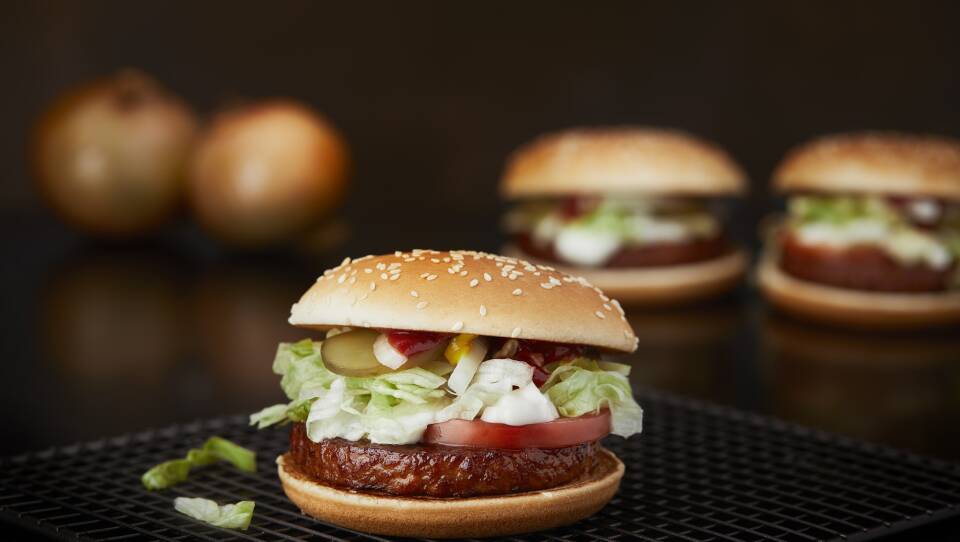When McDonald's recently announced the introduction of a vegan burger in Sweden and Finland, Twitter responded with a mix of earnest enthusiasm (@themodvegan: "So exciting- I hope we're next"), a little disgust (@JenaRoberta: "why would a vegan ever...support a company that sells millions of dead cow burgers a day?), and a touch of guilty hand-wringing from aging ideologues (@siniauer: "Feels like I'm cheating the 90's me").
As someone who has spent the better part of two decades wandering up and down the vegetarian spectrum, I'm with the last caller. But the overall thumbs-up emanating from the Twitterverse says a lot about the changing nature of vegetarianism, and the market driving this move.
According to a recent poll by Animal Rights Sweden, almost 1 in 10 Swedes is now vegetarian or vegan. Among the under-30s, the figure is an even more staggering 1 in 5. But perhaps the most eye-catching statistic from McDonald's viewpoint is that half of Swedes expressed an increased interest in choosing vegetarian options during the last year. It's these folks, the flexitarians, who are the McVegan's real target audience.
Sweden has had a veggie burger on the menu for over a decade. But the patty was bean-based and mushy, and while McDonald's head of food and menu strategy in Sweden, Staffan Ekstam, phrases it more delicately, the underlying message is that no meat eater was ever going to go there.
"The insight for us was that the burger patty that we used to have wasn't good enough," Ekstam says. "We could not develop new recipes with that patty. So we started a journey to see if there are any other patties out there that fit our needs."
After trying 100 different options, Ekstam and his team landed on a soy-based patty from Anamma, a brand of Orkla Foods Sweden. And ...
It's good.
At least, I think it's good. Firm, weighty, a tiny bit smoky with a strange — but not unpleasant —note of instant ramen, the patty comes topped with a generous dose of McFeast sauce (a vegan "special sauce"), lettuce, tomato, onion and pickles.
The rest of my family, who generally default to plain cheeseburgers and McNuggets, declared the McVegan "very tolerable," "ok" and "in the middle." "It tastes like beans," adds my youngest before returning to her barbeque sauce.
The other McVegan eaters I spot/accost in this mall in the southern city of Malmö are more enthusiastic. Sine Gamst, visiting from Copenhagen with her daughter and partner, has been vegetarian since 16. She takes a bite. "It's good! I like when the texture is a little hard, so you can feel something between your teeth."
Upstairs is 23-year-old Rama Bytyqi, a self-described "meat guy" from Malmö who says he doesn't know a single vegetarian. He ordered the McVegan just to try something new (perhaps swayed by the advertising he's been seeing all over the place). "It was like meat. It was a good experience — I really like it," he says, adding that he'll probably order it again.
It's stories like this last one that make Francesca Vilches happy. She's head of consumer issues at Animal Rights Sweden, and a vegan who admits she had mixed feelings when she heard about the McDonald's launch.
"My first thought was, well that's about time!" Viches says. (Another burger chain in Sweden, Max, has had a vegan sandwich on the menu for two years). "But I was very happy. I was, like, wow, that's a big step, because they're a big player and that means they think this is the future." She laughs. "And then all the other reactions came after."
But based on her organization's research, Vilches knows that what often stops people from going fully vegan (aside from, you know, cheese) is the feeling of not wanting to be the odd one out in restaurant situations, and she sees this mainstreaming as a step in remedying that.
Copyright 2018 NPR. To see more, visit http://www.npr.org/.




